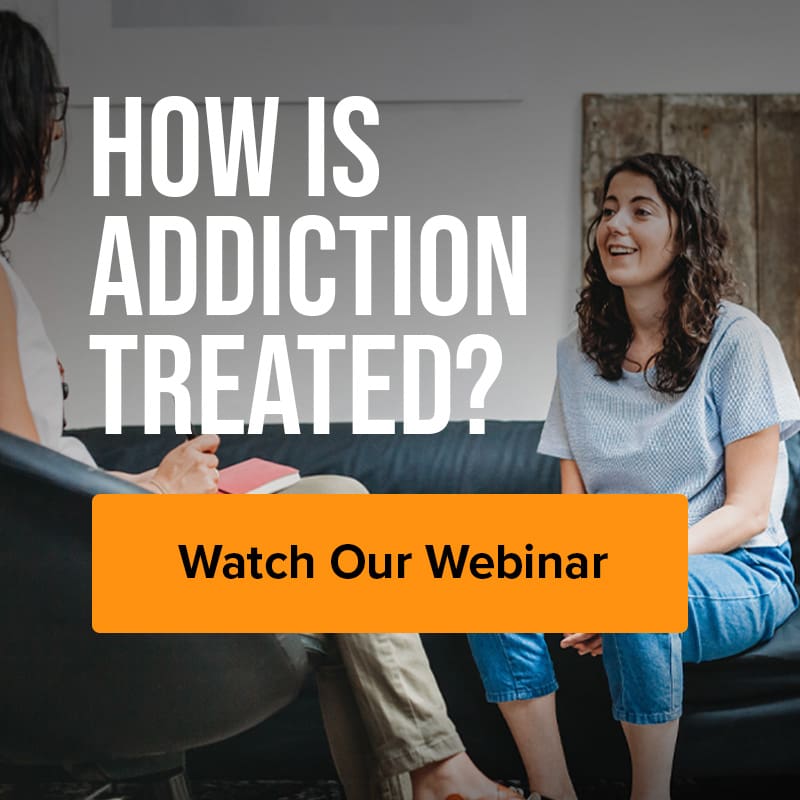Anxiety, depression, bipolar disorder, and trauma disorders—these are the most common mental health disorders that accompany addiction.
In honor of National Mental Illness Awareness Week, we would like to shed some light on some of the most common diagnosis that can co-occur with an addiction to substances or alcohol. When someone has a “co-occurring” or “concurrent” disorder, it means that they have both an addiction and a mental health disorder at the same time. In many cases, a person will suffer from a psychiatric disorder and try to self-medicate by abusing substances. Unfortunately, once they come clean from the substances, the mental health issues persist, making real recovery elusive.
The most common concurrent disorders are the following:
- Anxiety
- Depression
- Bipolar Disorder
- Trauma disorders
Anxiety Disorders
Anxiety is the most common mental illness in North America. Anxiety is more than temporary worrying or fear. People with anxiety disorders often try to self-medicate with drugs or alcohol, but the disorder only worsens over time if left untreated. The anxiety can interfere with daily life, such as work, family, school and relationships. There are several types of anxiety disorders, such as panic disorder, social anxiety disorder, and generalized anxiety disorder. Learn more about treatment for concurrent anxiety disorders.
Depression
Depression is also a very common disorder, classified as a mood disorder. It can cause severe symptoms that affect a person’s thinking and ability to participate in daily activities such as working, socializing, eating, and sleeping. It also has a big impact on thinking and making decisions. Again, many people with depression try to relieve the symptoms of sadness or hopelessness by self-medicating, only to have the symptoms worsen over time. Learn more about treatment for concurrent depression.
Bipolar Disorder
Bipolar disorder is another mood disorder that produces a shift in mood, energy, activity levels, and the capability to perform day-to-day activities. When someone is suffering from bi-polar disorder, they can experience periods of extremely “up,” elevated and energized behavior and then sink “down” to a very depressed or hopeless behavior. During depressive episodes, many people use drugs to feel more ‘up’ and during ‘down’ periods, use drugs to feel more energized. It is estimated that over half the people with bi-polar disorder also have a lifetime history of substance use disorders.
Trauma and Post-Traumatic Stress Disorder (PTSD)
Post-Traumatic Stress Disorder (PTSD) results when an individual has experienced a shocking, scary, or dangerous event such as an accident, a natural disaster, violence, or war. Someone with PTSD can be diagnosed with either ongoing (chronic) or short-term (acute) PTSD. It is very common for people with PTSD to try and self-medicate with alcohol to counter the effects of stress hormones that are released by the flight-or-fight response that kicks in when sufferers re-experience a trauma. Individuals suffering from PTSD often experience recurring and disturbing memories and dreams, which they may try to suppress using alcohol. In our programs, approximately 40% of people who seek treatment for addiction also suffer from PTSD. Learn more about treatment for concurrent trauma and post-traumatic stress disorders.
Why Do Substance Use Disorders (SUD), Addiction, and Mental Illness Commonly Occur Together?
There are three common circumstances that explain why so many people with addictions also have concurrent mental illnesses:
- Abusing drugs can cause the onset of a mental illness or worsen an existing mental condition.
- People who have a mental illness may self-medicate with drugs or alcohol to alleviate certain symptoms, and this can lead to addiction.
- Overlapping factors for both substance use disorders and other mental illnesses can leave certain individuals more vulnerable to developing concurrent disorders.
Many people enter treatment at Edgewood or Bellwood with an active addiction and a concurrent mental illness. We have found that both disorders must be treated together to achieve a sustainable recovery. Once the addiction is addressed, the concurrent anxiety, depression, bipolar disorder, or trauma disorder can also be treated. At that time, a comprehensive treatment plan can be established and implemented that treats both the substance use disorder and mental health disorders.
We Can Help You
If you would like to learn more about the treatment programs provided by EHN Canada, enrol yourself in one of our programs, or refer someone else, please call us at one of the numbers below. Our phone lines are open 24/7—so you can call us anytime.
- 1-800-387-6198 for Bellwood Health Services in Toronto, ON
- 1-587-350-6818 for EHN Sandstone, in Calgary, AB
- 1-800-683-0111 for Edgewood Treatment Centre in Nanaimo, BC
- 1-888-488-2611 for Clinique Nouveau Départ in Montreal, QC
Online Treatment and Support
If you’d like to learn more about our online treatment and support options, please call us at 1-888-767-3711 or visit onthewagon.ca.




